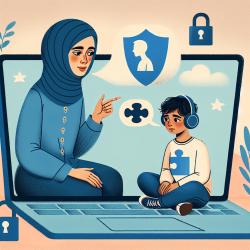The COVID-19 pandemic has revolutionized the educational landscape, thrusting virtual learning into the spotlight. As schools transitioned to online platforms, it became evident that traditional leadership skills needed adaptation. The research article "Leading Remotely: Competencies Required for Virtual Leadership" sheds light on the specific skills necessary for effective virtual school leadership. Here, we explore these competencies and how they can be harnessed to improve educational outcomes.
The Shift to Virtual Leadership
The pandemic forced many educational institutions to pivot quickly to remote learning. This shift highlighted a significant gap in preparedness among school leaders who were traditionally trained for brick-and-mortar environments. The study conducted interviews with 28 virtual leaders, revealing that while many foundational leadership principles remained relevant, unique competencies were required in a virtual setting.
Key Competencies for Virtual Leadership
- Adaptability: Virtual leaders must be flexible and able to adjust their strategies to fit the digital context.
- Communication: Effective communication is crucial in a virtual environment, requiring leaders to be deliberate and clear in their messaging.
- Technology Proficiency: Leaders need a strong understanding of digital tools and platforms to support online learning.
- Cultural Responsiveness: Virtual leaders must ensure that online materials are inclusive and culturally sensitive.
- Community Building: Creating a sense of community remotely involves innovative approaches to engagement with students, parents, and staff.
Challenges and Solutions
The research identifies several challenges faced by virtual leaders, such as maintaining student engagement and managing diverse technological needs. To address these issues, leaders are encouraged to foster strong relationships through regular virtual meetings and feedback sessions. Additionally, investing in professional development for teachers can enhance their ability to deliver high-quality online instruction.
Professional Standards for Educational Leaders (P-SEL)
The P-SEL standards provide a framework for effective leadership but require adaptation for the virtual context. The study found that while these standards align with virtual leadership needs, there are distinct differences that necessitate additional training and support.
Preparing for the Future
The findings from this study underscore the importance of revising educational leadership programs to include training on virtual competencies. As online education continues to grow, all school leaders must be equipped with the skills necessary to navigate this new landscape successfully.
For practitioners looking to enhance their virtual leadership skills, it is recommended to engage in ongoing professional development and seek mentorship from experienced virtual leaders. Networking with peers through webinars and conferences can also provide valuable insights into best practices.
To read the original research paper, please follow this link: Leading Remotely: Competencies Required for Virtual Leadership.










